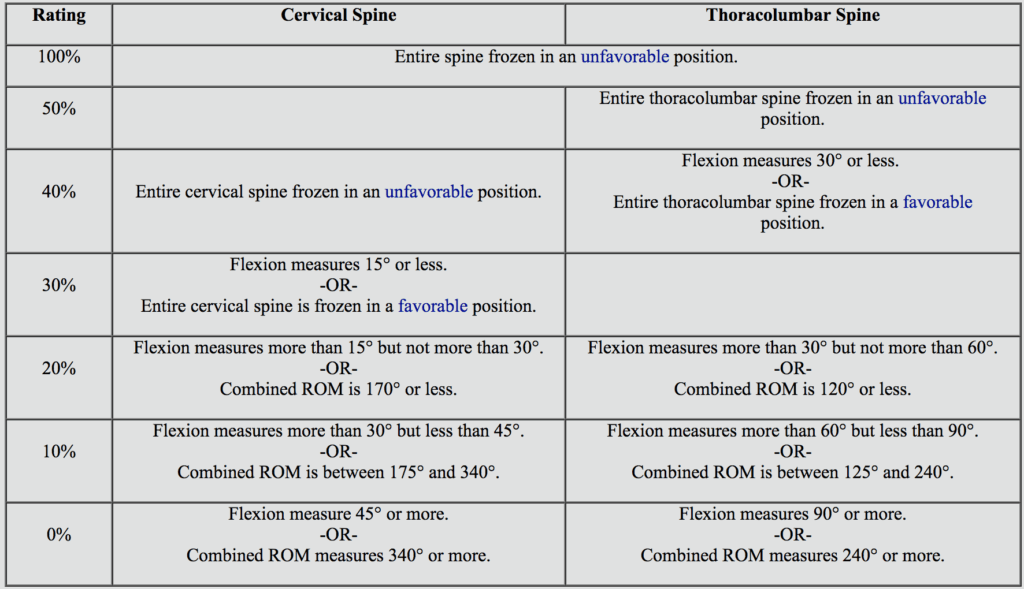VA Disability for Back pain
Do you have lower back pain? Or any type of back pain for that matter? Did you know you could be entitled to VA disability based on your service to our country?
Many veterans have had some sort of incident with there body while they served. Some people may have fallen, or others might have been more seriously wounded. Bottom line is we all worked our bodies to the bone while we trained to become soldiers, seaman, or airmen.
What is chronic back pain?
In order to be successful with your VA disability claim, you have to know what the VA is looking for. First, you must prove to the VA rater that your back pain has a clear
The way your back pain is measured is by your range of motion. In your C&P exam, this really means
Again, we are NOT encouraging you to lie or exaggerate your symptoms. You are being rated for everything as soon as you walk into the room. This means that you do not need to push through the pain for the rater. For further qualifications, your Veteran Coach will coach you before you go into your C&P exam.
Back and spine conditions
Here is some information straight from Military Disability Made Easy.
“It is challenging to decide how best to rate a spine condition, but the basic rule of thumb is to rate it under the code that would give the highest rating.
Always start first with the General Rating Formula (below). This is still the primary rating system for any spine condition, and any other rating system should only be used if it gives a higher rating. There are, of course, a few exceptions that are discussed below.”

“Also, note that the cervical spine and the thoracolumbar spine are to be rated as two separate conditions except when both are frozen in an unfavorable position.”
Here are a few pointers for your back claim
– If the spine is frozen and cannot move at all, it is considered favorable if it is frozen at 0° for flexion or extension. If it is frozen at any other place in flexion or extension, then it is considered unfavorable.
– All measurements are rounded to the nearest 5 (8° rounds up to 10°, 7° rounds down to 5°, etc.)
– There are some very rare circumstances where a physician can declare that a limited ROM is normal for an individual and thus not ratable. This is very rare and only happens if the physician can provide significant evidence that the ROM is normal for a particular individual.
There is one general rating formula for any condition of the spine that is used in the majority of cases. We’ll discuss this general formula first, and then address exceptions.
The general formula is based primarily on the range of motion (ROM). The images below show a standard ROM for the cervical and thoracolumbar spines.”
Remember, your rating is based on the range of motion
Military Disability Made Easy has many great resources for any aspect of your claim that you are considering. Head over to their website and take a look around. You will find many great resources there
David Sinsel is apart of VA Claims Insider Team and an Army Disabled Veteran. You can contact him at [email protected]
